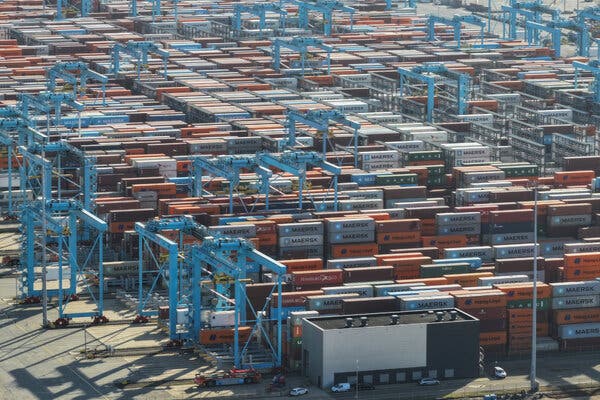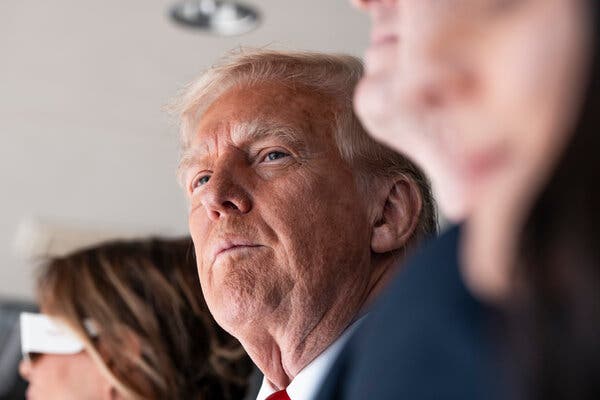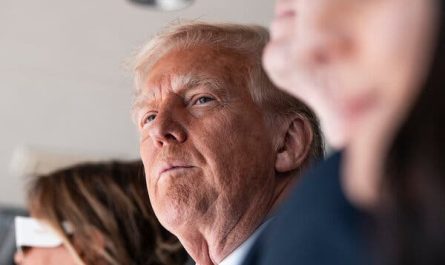As other American trading partners receive letters threatening excruciatingly high tariffs across the board, the European Union is desperately trying to reach a resolution and hopes to have a preliminary draft of a trade agreement with the United States this week.
While acknowledging progress in their conversations, President Trump hinted on Tuesday that he would write such a letter to the European Union this week.
At a news conference on Wednesday afternoon, however, Olof Gill, a spokesperson for the European Union’s executive branch, stated that he understood the 27-nation bloc would not receive a straightforward White House proclamation alerting them of its tariff rate.
Rather, European leaders have been aiming for a basic agreement that can be expanded upon later.
Ursula von der Leyen, the president of the European Union’s executive branch, told the European Parliament in Strasbourg, France, on Wednesday morning that they are seeking a clear foundation from which they can continue to build.
According to Mr. Gill, the bloc’s chief trade negotiator, Maros Sefcovic, spoke with U.S. Commerce Secretary Howard Lutnick on Tuesday and was due to meet with Jamieson Greer, the U.S. trade representative, on Wednesday night. He stated that the objective was to get an agreement as soon as possible, ideally in the next few days, and that the EU was currently in the most delicate stage of negotiations.
On Tuesday, Mr. Trump appeared to challenge that speedy resolution.
He remarked of the Europeans, “They’re very tough, but now they’re being very nice to us, and we’ll see what happens.” We’ll probably be sending them a letter in two days.
“A letter means a deal,” he continued.
Although policymakers hoped to avoid a broad-brush letter, the remarks caused consternation in Brussels on Wednesday.
Europe is likely to experience economic hardship even in the event that a negotiated solution is reached.
A basic tariff of at least 10% is anticipated in any agreement, with possible exceptions for essential goods like Airbus aircraft. Although the specifics have remained ambiguous, negotiators have been attempting to obtain exemptions from sector-specific tariffs on goods like metals and automobiles.
On Tuesday, Mr. Trump stated that tariffs on copper and other goods would soon be implemented, and that he intended to eventually increase them to 200 percent on pharmaceuticals, Europe’s biggest export to the US.
Germany and other European nations have been pressing for a speedy agreement that avoids catastrophic outcomes and puts an end to months of crippling uncertainty. The massive auto industry in Germany has been especially hard hit.
On Wednesday, German member of the European Parliament Bernd Lange stated, “We would like to have an understanding quite soon because sectorial tariffs are really harming us.”




